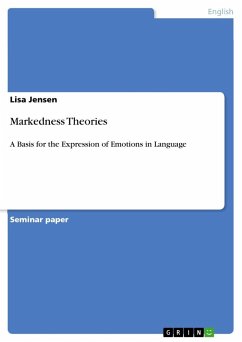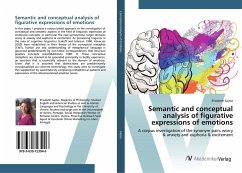Seminar paper from the year 2009 in the subject English Language and Literature Studies - Linguistics, grade: 2+, University of Cologne, language: English, abstract: 1. IntroductionThere is no better way to explore different cultures than through analysing the languages spoken by members of ethnical communities. Indeed, the best evidence for differences and similarities between people, as bearers and products of cultures, comes from languages. Besides body language and facial mimics, speech is essential for expression of thoughts or feelings and emotions for every human being. However, the way of expressing emotions differs from culture to culture and from continent to continent according to the indigenous values and norms of the persons concerned. Anna Wierzbicka together with Cliff Goddard and their colleagues did linguistic research on many European and exotic languages, comparing them in order to find differences and similarities. They gained many interesting insights about the language as an "indicator" of culture, as it necessarily reflects on it. The Russians and the Anglo seem to be very different from each other as to expression of emotions due to their general attitude to having them and above all, to expressing them. In order to provide an objective analysis for all languages which can be understood by everybody, a Natural Semantic Metalanguage based on semantic primitives, has been developed. This new mean allowed to produce cultural scripts and to develop "models of a person", representing the culture-specific norms and values.Further, in this work, the Natural Semantic Metalanguage and the Russian and Anglo models of a person are explained in greater detail. Finally, it concentrates on the linguistic evidence pertaining to expression of emotions in English and Russian.[...]








